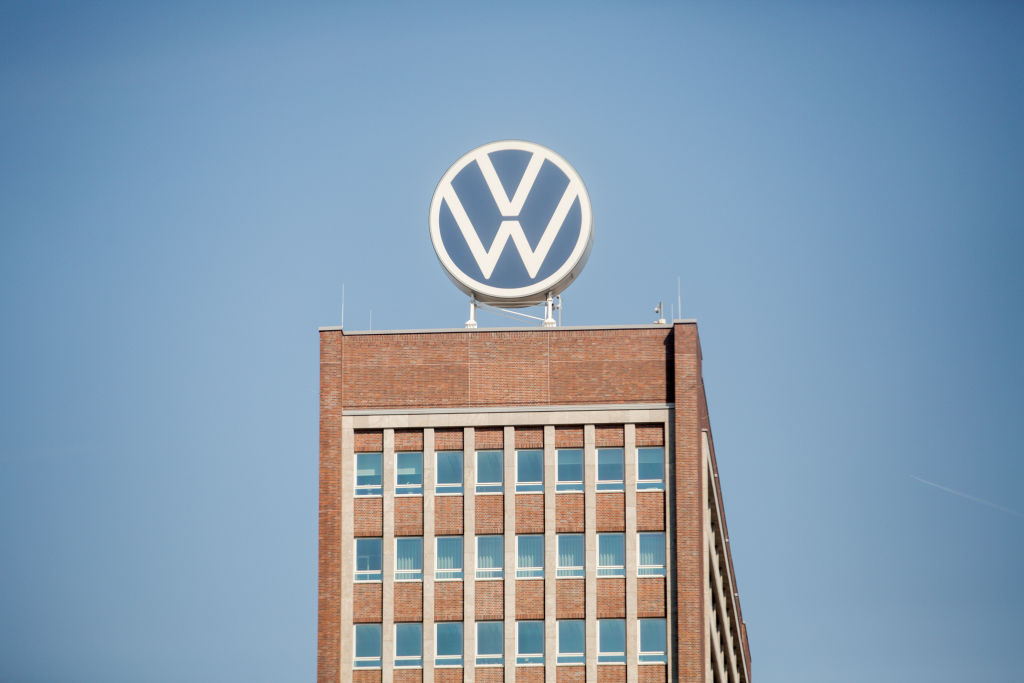Volkswagen mulls closure of German factories
Why is Volkswagen considering the closures and how is the carmaker performing?


Get the latest financial news, insights and expert analysis from our award-winning MoneyWeek team, to help you understand what really matters when it comes to your finances.
You are now subscribed
Your newsletter sign-up was successful
Want to add more newsletters?
Carmaker Volkswagen (VW) is considering shutting down two German factories. They would be the carmaker’s first closures in its domestic market, says Jasper Jolly in The Guardian. The Wolfsburg-based manufacturer has informed its employee works council that it was looking at closing “at least one larger vehicle manufacturing plant and one component factory in Germany” in order to save billions of euros. These proposals underline the difficulties traditional European carmakers are having in “switching from profitable but polluting petrol and diesel cars to cleaner but currently less profitable electric vehicles”.
Why is Volkswagen considering the closures?
VW has been hit by unexpectedly poor demand for electric vehicles in Europe as well as a “shrinking market share in China, its most profitable market”, say Patricia Nilsson and Kana Inagaki in the Financial Times. However, its drastic decision to break with tradition has also been prompted by the fact that a savings programme launched last year has fallen short, with not enough workers taking up its offer of early retirement or redundancy.
VW’s operating margins have therefore continued to fall, reaching 2.3% in the first half of 2024, far below the 6.5% target it aims to reach by 2026. Finalising the closures will be a “major test” for CEO Oliver Blume, say Monica Raymund and Christoph Rauwald on Bloomberg. Union clashes “felled a number of his VW predecessors”, who all left after they “tried to push through efficiencies”.
Try 6 free issues of MoneyWeek today
Get unparalleled financial insight, analysis and expert opinion you can profit from.

Sign up to Money Morning
Don't miss the latest investment and personal finances news, market analysis, plus money-saving tips with our free twice-daily newsletter
Don't miss the latest investment and personal finances news, market analysis, plus money-saving tips with our free twice-daily newsletter
Part of the problem is VW’s “labyrinthine governance system”. Management must gain the support of both the billionaire Porsche-Piech family and labour unions for major decisions. The fact that the Lower Saxony government owns a 20% stake is also a problem, as while it supports VW’s cost-cutting efforts, it also insists that “alternative options” to closures must be explored.
This article was first published in MoneyWeek's magazine. Enjoy exclusive early access to news, opinion and analysis from our team of financial experts with a MoneyWeek subscription.
Get the latest financial news, insights and expert analysis from our award-winning MoneyWeek team, to help you understand what really matters when it comes to your finances.

-
 Do you face ‘double whammy’ inheritance tax blow? How to lessen the impact
Do you face ‘double whammy’ inheritance tax blow? How to lessen the impactFrozen tax thresholds and pensions falling within the scope of inheritance tax will drag thousands more estates into losing their residence nil-rate band, analysis suggests
-
 Has the market misjudged Relx?
Has the market misjudged Relx?Relx shares fell on fears that AI was about to eat its lunch, but the firm remains well placed to thrive
-
 Has the market misjudged Relx?
Has the market misjudged Relx?Relx shares fell on fears that AI was about to eat its lunch, but the firm remains well placed to thrive
-
 Review: Pierre & Vacances – affordable luxury in iconic Flaine
Review: Pierre & Vacances – affordable luxury in iconic FlaineSnow-sure and steeped in rich architectural heritage, Flaine is a unique ski resort which offers something for all of the family.
-
 8 of the best properties for sale with minstrels’ galleries
8 of the best properties for sale with minstrels’ galleriesThe best properties for sale with minstrels’ galleries – from a 15th-century house in Kent, to a four-storey house in Hampstead, comprising part of a converted, Grade II-listed former library
-
 The rare books which are selling for thousands
The rare books which are selling for thousandsRare books have been given a boost by the film Wuthering Heights. So how much are they really selling for?
-
 How to invest as the shine wears off consumer brands
How to invest as the shine wears off consumer brandsConsumer brands no longer impress with their labels. Customers just want what works at a bargain price. That’s a problem for the industry giants, says Jamie Ward
-
 A niche way to diversify your exposure to the AI boom
A niche way to diversify your exposure to the AI boomThe AI boom is still dominating markets, but specialist strategies can help diversify your risks
-
 New PM Sanae Takaichi has a mandate and a plan to boost Japan's economy
New PM Sanae Takaichi has a mandate and a plan to boost Japan's economyOpinion Markets applauded new prime minister Sanae Takaichi’s victory – and Japan's economy and stockmarket have further to climb, says Merryn Somerset Webb
-
 Early signs of the AI apocalypse?
Early signs of the AI apocalypse?Uncertainty is rife as investors question what the impact of AI will be.